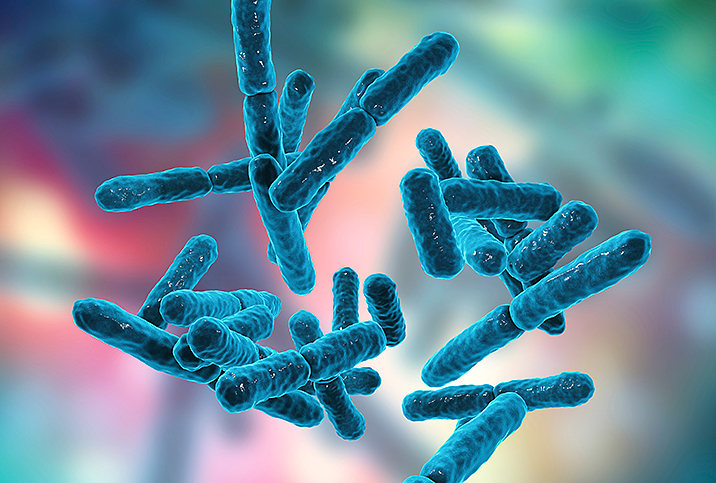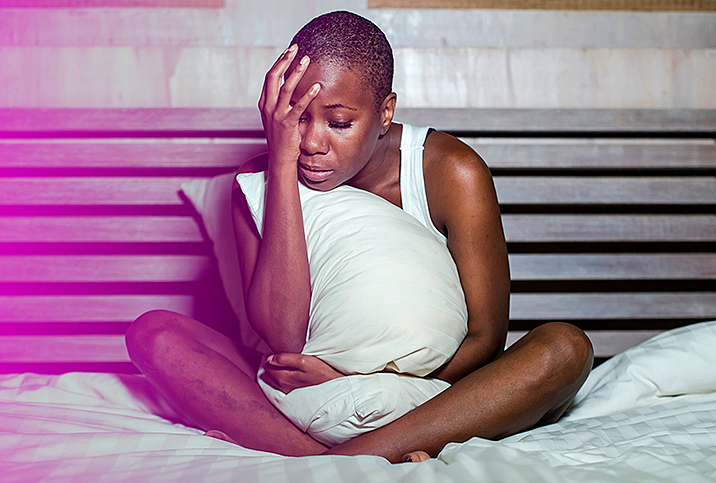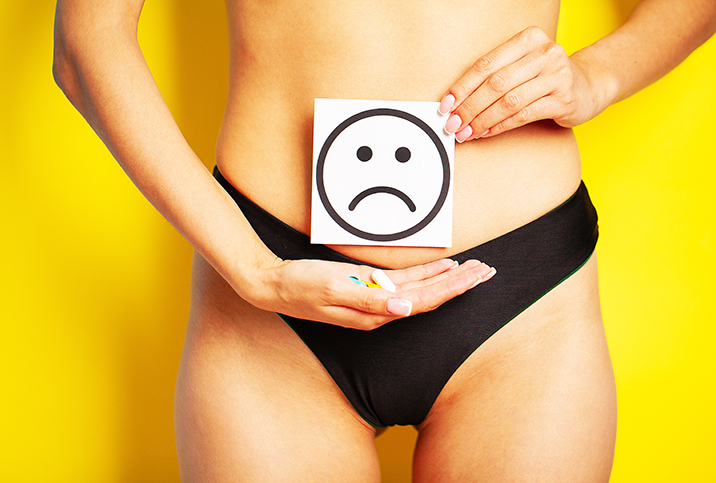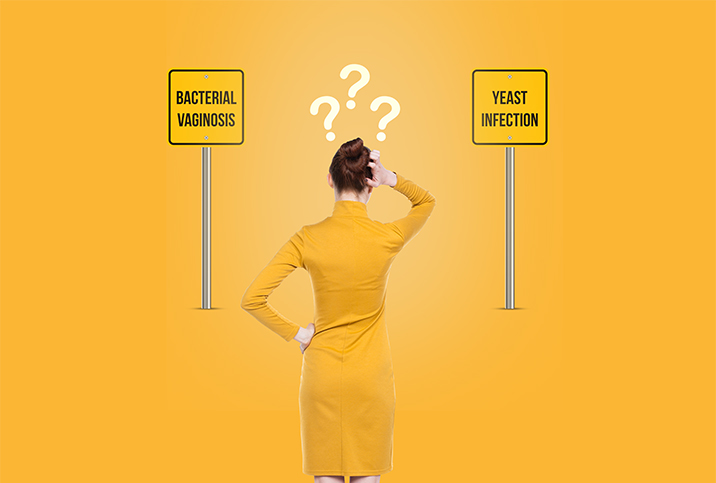Probiotics May Help Prevent Chronic Yeast Infections

On my 25th birthday, I realized I had experienced recurrent yeast infections two to three times a month for the past year. Unless I was on my period, my vagina almost consistently had the itching, burning, leaking sensation of a yeast infection.
The recurring infections affected my sex life, self-esteem and sanity. Antifungal treatments such as clotrimazole offered some relief for a few weeks, and then my symptoms returned.
Yeast infections are extremely common, with up to 3 out of 4 women affected at some point in their lives.
"Yeast infections are one of the most common things that I treat," said Latasha Murphy, M.D., a gynecologist at Mercy Medical Center in Baltimore. "I probably treat two to three per week at a minimum."
While doctors usually suggest antifungal medication, it wasn't until I picked up some women's health probiotics that I experienced prolonged relief. After two months of taking one pill a day, my yeast infections finally eased up. While this experience is shared with other anecdotal stories, more research is needed to determine whether probiotics actually help prevent yeast infections.
Resistance to common antifungal medications
As with bacterial resistance to antibiotics, fungal species such as Candida albicans, the most common fungal infection in humans, have become resistant to commonly used antifungal medications. This forces doctors and patients to have to figure out a different route for treatment, especially in the cases of chronic infection.
"Many yeast infections are resistant to the over-the-counter medications and, therefore, do not work to clear the infection," Murphy said.
While some holistic doctors advocate using probiotics to prevent yeast infections, the research on probiotics' effectiveness is quite scant.
"Many studies have assessed the value of probiotics for the treatment of yeast infections, and most of the data points towards no significant improvement," said David M. Kimble, M.D., pelvic floor expert and board-certified urogynecologist at the Kimble Center in Pasadena, California.
However, he also noted most of those studies were short-term with no longevity data.
The cause of yeast infections
The first point to understand is the cause of yeast infections and how probiotics could possibly prevent them from happening.
"The vagina has a unique combination of yeast and bacteria to maintain balance. When the bacteria numbers decrease, yeast infections are more likely to occur," Murphy explained.
In other words, yeast infections can happen when the microbiome in the vagina becomes unbalanced by too much yeast, commonly Candida albicans, and not enough bacteria, including an organism called lactobacillus. This overgrowth of yeast can be caused by antibiotic use, uncontrolled diabetes, immune system deficiencies, oral contraceptives or hormone therapy.
Probiotic options
The theory behind probiotics is that they help maintain the delicate balance of vaginal flora.
"The probiotics do not exactly treat the yeast infections themselves. Rather, they prevent the vaginal bacteria from dropping and reduce the opportunity for yeast to take over and cause an infection," Murphy explained.
Yogurt and honey
You may have come across various supposed "home remedies" for treating vaginal yeast infections, including soaking a tampon in yogurt and honey and inserting it into the vagina as a "cost-effective" and natural probiotic (please don't do this).
Vaginal cream made of a yogurt and honey mixture worked just as well as a traditional clotrimazole cream and was even more effective in treating some symptoms, according to a small 2015 study published in the Global Journal of Health Science.
However, it's important to note that this was only one study and there is not enough data to recommend this as an effective treatment option. Additionally, even if the results of the study were replicated in the future, using yogurt as a treatment would work only if the yogurt contained lactobacillus.
"That's because the drop in lactobacillus bacteria is the primary change that causes bacterial vaginosis or yeast infections," Murphy said.
Kimble agreed yogurt with lactobacillus could have the same effects as probiotics but warned against applying yogurt directly into the vagina. The vast majority of doctors discourage this home remedy because it can lead to infection or worsen one you already have. Most store-bought yogurt contains sugar and putting sugar in your vagina is a definite no-no. Anything sweet (yogurt, honey, chocolate, etc.) can change your vaginal pH balance, which makes bacterial yeast thrive.
Lactobacillus probiotics
More than 170 species of lactobacillus are both a part of the natural vaginal flora and used in many commercial probiotics.
"The best probiotics contain higher concentrations of lactobacillus, or the good, protective organism in the vagina," Kimble explained.
A small 2018 study of 93 women with a history of recurrent yeast infections found lactobacillus plantarum P17630 improved lactobacilli colonization and decreased swelling and discharge. Other research suggests lactobacillus rhamnosus GR-1 and lactobacillus reuteri RC-14 probiotics may work to inhibit yeast growth. However, this study was done on cells in the lab and not on real-life participants.
A combined approach
Other studies used probiotics with lactobacillus strains in addition to topical clotrimazole. A small 2018 study of 48 women found that while clotrimazole caused an immediate improvement, only the group treated with probiotics had improvement in itching and discharge three to six months later, suggesting the live bacteria may play an important role in prevention.
Kimble agreed that the best course of action is to take an antifungal for treatment and a probiotic for prevention.
"Once a yeast infection occurs, the best treatment is an antifungal medication administered orally or directly in the vagina. Probiotics are best used to prevent another yeast infection," he said.
Are probiotics worth trying?
With most of the research consisting of small studies, the jury is still out on using probiotics to treat yeast infections.
The Food and Drug Administration (FDA) hasn't approved probiotics for any specific health benefits. Since they're considered dietary supplements, they're not regulated before they're marketed, and some probiotics might not have as many cultures as they promise on the label or may contain other ingredients.
Still, the minimal side effects of probiotics mean they might be worth a shot.
"Probiotics would be considered better than antifungals for a mild yeast infection since probiotics carry very little risk. Antifungals may react or interfere with certain other medications and may alter liver function with chronic use," Kimble said.
The main point to remember is that you should seek in-person treatment if you suspect you have a yeast infection. Unfortunately, many women are misdiagnosed with yeast infections via phone or telehealth appointment. In order to properly treat recurrent yeast infections, it is important to establish that it is yeast causing the patient's symptoms and, in some cases, to culture the yeast to ensure it is not a rare or resistant strain.
Once a yeast infection has been determined, your doctor will likely recommend an antifungal medication, which is a medically proven treatment. After treatment, and in consultation with your physician, you may want to incorporate probiotics as a supplement in your daily routine as a preventive measure.


















